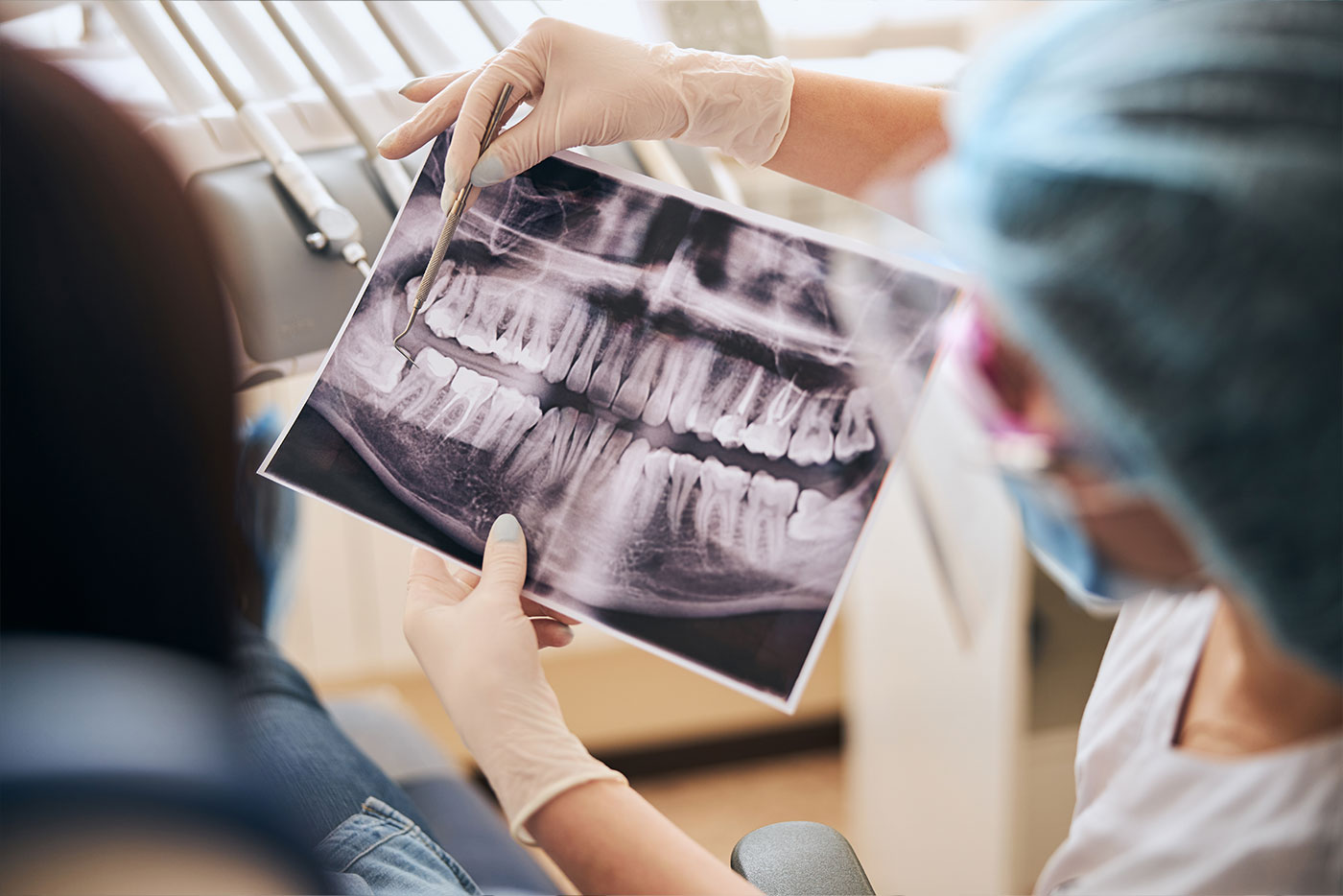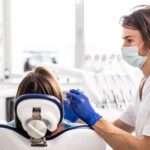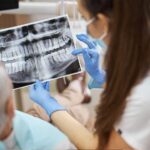A lot of dental practices and procedures can trigger anxiety in patients, and x-rays are no exception. Fortunately, x-rays are nothing to worry about, and learning more about them can be relieving for many patients.
Dental x-rays are basically tools that dentists use to better observe the teeth and gums, either to check for disease or prepare for procedures. They are not physically invasive and are completely pain-free! But let’s go a little deeper.
Are Dental X-Rays Safe?
Dental x-rays are safe for both children and adults. While they do involve radiation, the exposed levels are extremely low and highly unlikely to cause any negative ramifications to your health. In fact, the amount of radiation you are exposed to during an x-ray is actually significantly less than that which you are exposed to from other everyday sources.
If your dentist uses digital x-rays, your risks or radiation are even lower. However, you may notice that your dentist will step out of the room during your x-ray. This is due to the fact that, rather than being exposed to x-ray radiation every few months, your dentist is taking multiple x-rays a day. Stepping out of the room is therefore necessary to avoid ongoing exposure.
Pregnant people are also considered something of an exception to the rule. While you can safely get an x-ray done while pregnant, there are additional steps that need to be taken in order to ensure your wellbeing. If you’re pregnant, discuss the topic with your dentist first to confirm that everything is as safe as possible.
Why Might Your Dentist Suggest You Get X-Rays?
There are many reasons why your dentist might suggest an x-ray, and these reasons are largely dependent on your current and prior oral health. As a general rule, dental x-rays are required once a year to check for any diseases that lie beneath the surface of the teeth and gums. You might require x-rays more frequently if your dentist is tracking the progress of a dental condition or treatment. You will also receive more frequent check-ups if you have a history of gum disease or tooth decay. Moreover, dental x-rays are required for your first treatment at a clinic, as your new dentist will need to get an idea of your dental health. It is also worth noting that regular x-rays are often more necessary for children, because the dentist needs to observe the growth of their adult teeth.
Not all diseases can be observed simply by looking with the naked eye, so dental x-rays serve a crucial purpose. They can detect diseases or conditions such as tooth decay, abscesses, cysts and tumours. If gum disease has progressed to the stage where bone has been lost from around the teeth, an x-ray should reveal this loss. X-rays can also help your dentist find extra teeth, missing teeth, and impacted teeth, which are teeth that have been blocked from moving into the mouth. They might also need to observe the stage of your tooth’s development, or where a tooth lies in relation to nerves, sinuses, and other facial structures. If you are experiencing pain in the jaw or mouth as the result of an injury, your dentist will likely use x-rays to figure out if there is a tooth or bone fracture. They might also take an x-ray if they suspect that issues have occurred with your past dental treatment.
Essentially, dental x-rays are medical tools that allow dentists to prepare for procedures such as fillings, dental implants, root canal treatment and tooth extractions. They are also useful in preparation for orthodontic treatment and denture fabrication.
What Can You Do to Minimise Your Need for Dental X-Rays?
The best way to minimise the amount of dental x-rays you receive is simply by taking care of your teeth. While some things can’t be helped, maintaining good oral health will reduce your chances of experiencing decay and developing things like abscesses. Going to the dentist for regular check-ups is also useful, as this will help your dentist stay on top of your dental health and catch any issues early. It is also vital that you protect your teeth from harm when participating in certain activities. Wear a mouthguard during sports games and avoid risky stunts, as these situations can easily lead to a broken tooth or jaw.
Talk to Your Dentist About X-Rays Today
If you have anxiety around x-rays, it might be helpful for you to talk it through with your dentist. Their priority will always be your health and wellbeing, so you can trust that they have your best interest at heart. It might also be helpful to practise a calming routine before you head into the dentist. Take time to relax and indulge in some self-care to prepare yourself for the appointment, and remember that short term discomfort will lead to long-term health.















